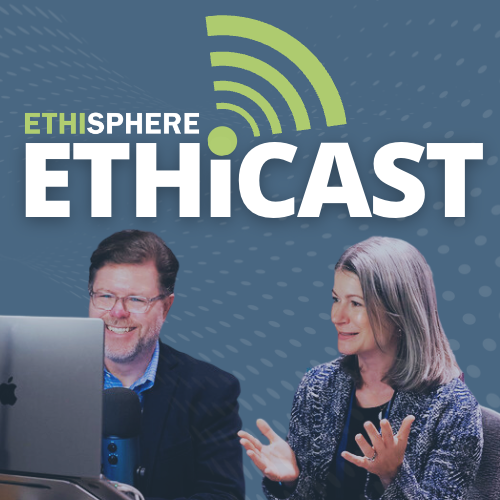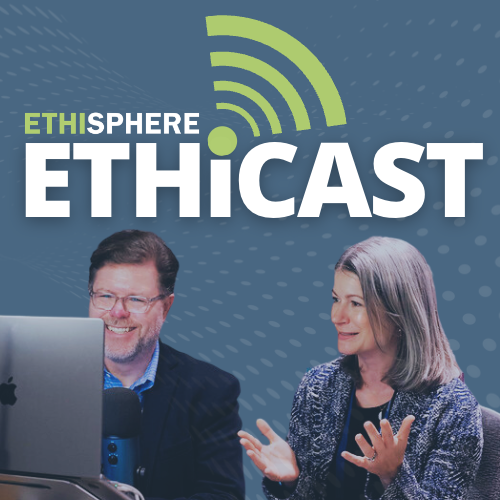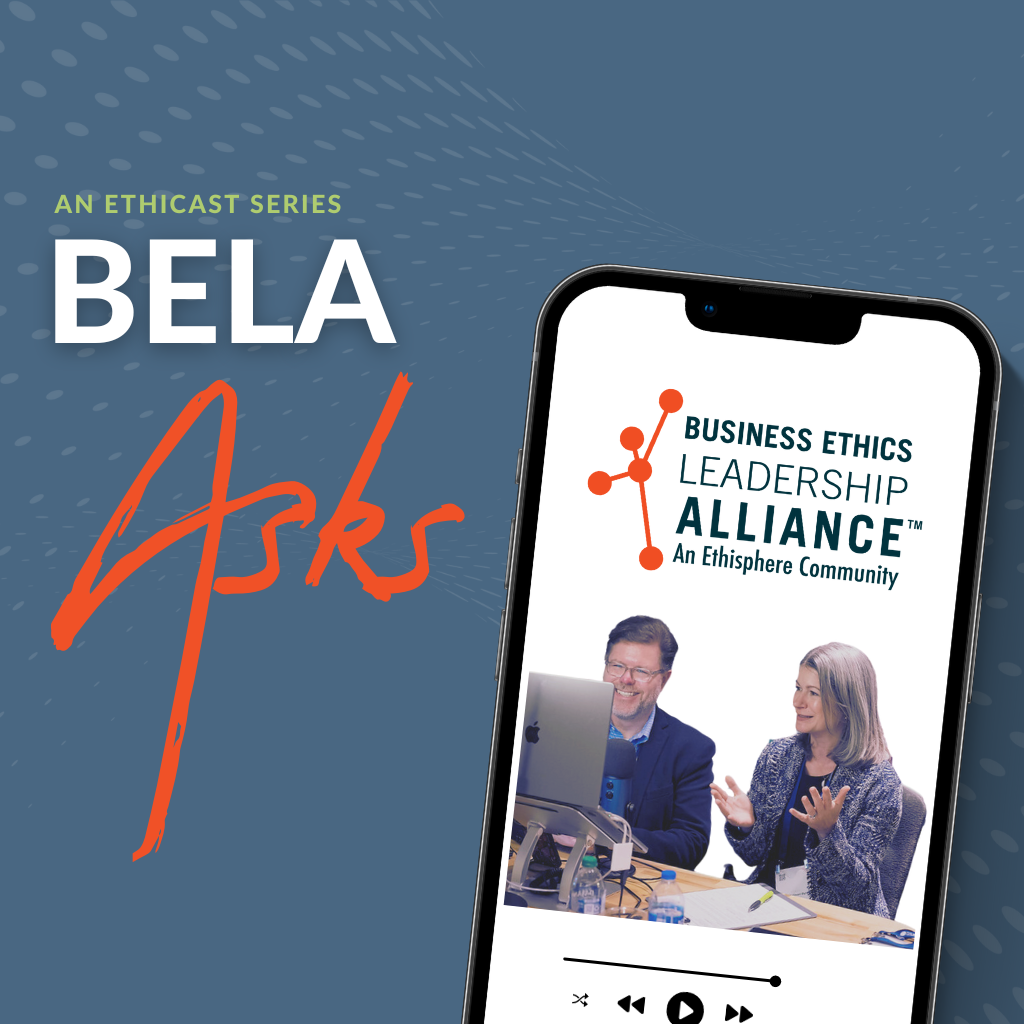[00:00:00] Speaker A: Hi, everyone. The Business Ethics Leadership alliance has questions and we have answers. I'm your host, Bill Coffin. Welcome to another Bella Asks episode of the Ethicast.
One of the best benefits of being a member of the Business Ethics Leadership alliance, or bella, is that if you have any questions at all about ethics and compliance, you can submit them to Bella's concierge service and one of our internal experts will provide an answer and direct you to a helpful resource for more information. Many of these requests speak to broad challenges facing Bella members and by extension, the wider ethics and compliance profession. That's why we're using this show to thematically respond to high level questions from the Bella community. And joining us once again to answer those questions is Bella chair Erica Salmon Byrne. And Erica, it's good to see you again. Thank you for joining the show.
[00:00:55] Speaker B: Oh, Bill, it's my pleasure. I'm delighted to come back and answer more questions.
[00:01:00] Speaker A: Well, our next question is a Speak up question and it reads, how do I create a whistleblower charter?
[00:01:06] Speaker B: Yeah, it's a good question. And for those of you out there in the world who have been listening, as we have done, near to 50 of these, Bella asks, and you say to yourself, boy, Bill categorizes every question before he asks Erica the question. I just want to take a quick second for the listeners benefit and say that's because we categorize every question on the back end so that we can track the trends and the things that our BELLA members are asking of us and asking of each other so that we make sure that we are creating the right kind of content and resources for the benefit of the community. So when Bill says it's a Speak up question, that's the way we categorize it in our systems. And I wanted to start with that particular clarification because it can be very challenging at times to think of whistleblowing and Speak up as really being the same thing. And as longtime listeners of the show know, one of the hills that I will die on is let's stop calling them whistleblowers already. So I would strongly recommend that the person who wrote this question in think of it as a Speak up charter, right? Not a whistleblowing charter. Now that said, we do also have a lot of members of the community who are looking to create investigator codes of conduct, which is basically a, a document that they can give to investigators about how investigations should work and people should be treated. And then they can also share with their employee base to say, this is what you should, how you should feel if you go through the investigations process. So the person who asked this question may have been thinking about it in that context as well, which is like, I have this program. What goes into a document that makes for a good investigation, fundamentally speaking, whether you're thinking of it as a whistleblowing program charter, an ombuds charter, a Speak up charter, an investigator code of conduct, you're drafting documentation that is going to govern one of the trickiest processes at your organization with whom some of the smallest percentage of your employees are likely to engage. So you have a lot of people at your company who are never going to engage with the Speak up process the way that you're maybe thinking of the Speak up process. Right. I have an issue, I see it, I bring it forward, the company investigates it, they resolve the issue.
That is going to be a slice of your employee base. But you have the opportunity to use that document to try to create an environment where people are going to be inclined to use that process, whether they ever have a need to access it or not. So you want to think about who am I writing for? Right. What is the, what are the elements that should go into a document like this? Is it going to be about the way people are going to be treated, the way people should feel heard and responded to? Maybe you're somebody who is based in the EU and is looking at the whistleblower directive and thinking to yourself, I need to make sure my process is going to comply with the whistleblower directive. So you might have language in there about ability to respond to allegations. If I'm somebody who has been accused of engaging in inappropriate behavior, maybe you're going to have information in there about how long the process should run for. Maybe you're going to have information about what retaliation looks like. So you really want to think about how do I create a document that describes a process that people are going to trust. Ultimately that's what makes for a good charter.
[00:04:22] Speaker A: Do you mind if I ask you a follow up question?
[00:04:24] Speaker B: I never mind a follow up question.
[00:04:26] Speaker A: And I will always ask.
The Bella member hub is just an absolute treasure trove of great examples of documents like this in practice. Are there any in there that strike you as particularly good examples of what you're talking about?
[00:04:42] Speaker B: Yeah, there are a handful for sure. And you're right, Bill. There's thousands of documents at this point in the Bella member hub. Both things that we here at Ethisphere have created for the benefit of the community and also things that our Bella members have agreed to share with each other in fulfillment of the Bella motto that there's no competition in compliance. And so there's lots of great, great information in the Bell member hub for different pieces of this. We have examples of the ways in which companies are structuring their follow up with people who raise concerns. We have examples of strong investigator training because you have different people doing investigations across your business that come in with different kinds of backgrounds and how do you make sure that that process is consistent and appropriate across the organization? So lots and lots and lots of great examples, but all of them really structured with that base formulation of who's my audience? All employees. Right. I'm going to write for everyone regardless of whether they are ever going to use this process and what information do they need to have in the document for them to feel comfortable coming forward and telling me what they see.
[00:05:45] Speaker A: Well, Erica, as always, we really appreciate you coming in to answer these questions. On behalf of the Bell community, thank you so much for joining us.
[00:05:51] Speaker B: Oh, it's my pleasure. And to all those Bella members out there listening in, keep those questions coming and Bill and I will come back and record episodes 55, 67 and 142.
[00:06:03] Speaker A: To learn more about Bella, please visit ethesphere.com Bella to request guest access to the member resource hub and to speak with the Bella Engagement Director. And if you have a question that you would like answered on Bella Asks, be sure to use the Bella Concierge service and we'll get to your question just as soon as we can. I'm Bill Coffin and this has been a special Bella Asks episode of the Ethicast. For more episodes, please Visit the Ethisphere YouTube
[email protected] ethisphere and if this is your first time enjoying the show, please make sure to like and subscribe on YouTube, Apple Podcasts or Spotify. Thanks so much for joining us. And until next time, remember, strong ethics is good business.


